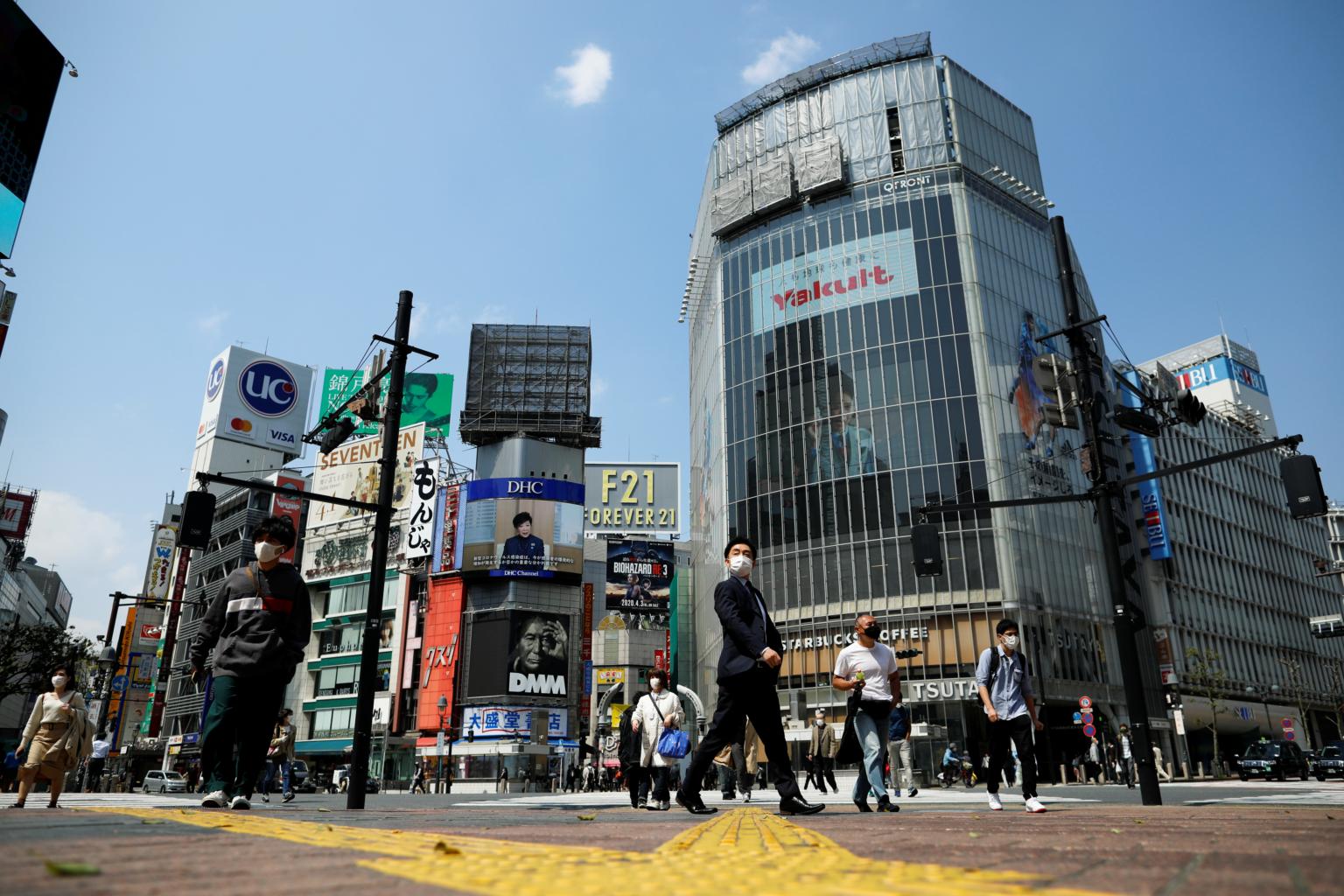Coronavirus: Japan's megacities move to control growing crowds in suburbia as downtown becomes ghostly quiet
Sign up now: Get insights on Asia's fast-moving developments

Entertainment hubs like Shibuya and Shinjuku in Tokyo are now ghosts of their normal selves.
PHOTO: REUTERS
Follow topic:
TOKYO - Japan's megacities are being forced to look at crowd control measures in their suburban residential areas, after "strong appeals" for people to avoid going downtown worked relatively well.
Entertainment hubs from Shibuya and Shinjuku in Tokyo to Umeda in Osaka and Sannomiya in Kobe are now ghosts of their normal selves, with footfall plunging by about 70 per cent, but residential shopping arcades have become more crowded.
Like Singapore, Japan has not gone down the road of a full-scale lockdown that some countries have embarked on.
The national state of emergency, effective until May 6, does not have provisions that impose criminal penalties on anyone who disobeys appeals to stay home, or any business that ignores requests to close.
As of 7pm on Thursday (April 23), Japan had 12,286 cases. Tokyo had 134 new cases, bringing its total to 3,572.
Policy measures remain inconsistent across prefecture borders, even though 40 out of the 47 prefectures have asked non-essential businesses to shut in response to the emergency decree.
The requests have gone unheeded by businesses like pachinko (slot machine) parlours that draw people looking for a punt.
Prime Minister Shinzo Abe this week said Japan was at a "critical juncture", reiterating calls for people to stay home and avoid returning to their hometowns during the Golden Week holidays, starting April 29, to stop the spread of Covid-19 to the rural regions.
Tokyo Governor Yuriko Koike said on Thursday that the capital and its surrounding prefectures will designate April 25 to May 6 as the "Stay At Home To Save Lives Period", and has asked companies to give their employees an extended break.
"The best way to prevent the spread of the coronavirus is to decrease contact between people," she said. "I ask residents to refrain from non-essential travel, and to especially refrain from going to sightseeing spots outside Tokyo."
Government leaders are not dissuading outdoor activities, resulting in more crowded parks and jogging trails. It has also led to a surge in visitors in some areas last weekend.
Kamakura, whose Shonan Beach is popular among surfers, is asking people to stay away, as has mountaineering groups like the Japanese Alpine Club which have told hikers to avoid mountains.
Campgrounds in remote Japan have also said they will shut.
Meanwhile, to control crowds in residential Tokyo, Ms Koike exhorted people to go shopping for groceries or essentials once every three days only.
She also asked shops to consider such measures as limiting the number of shopping carts and setting specific times for vulnerable communities such as the elderly, disabled and pregnant.
In Osaka, Governor Hirofumi Yoshimura said he was considering time and entry restrictions at the city's supermarkets.
Japan will decide how far it will lift the state of emergency, if at all, nearer its expiry on May 6.
But with its reluctance for wider testing over profound fears of a collapse of its medical system, there are questions whether it is doing enough to snuff out mild or asymptomatic cases.
Amid a growing pool of evidence of a wider outbreak in society, Chief Cabinet Secretary Yoshihide Suga admitted on Thursday it was "impossible to tell the true extent of infections".

